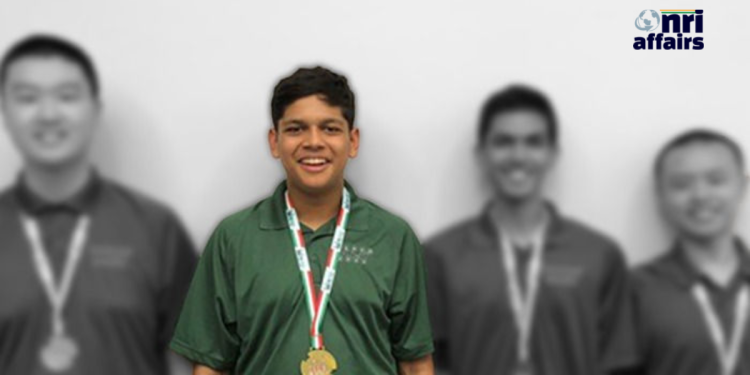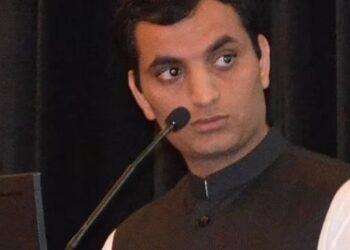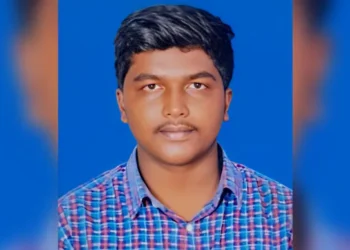The global programming community celebrated a monumental achievement as an Indian-origin teen secured the prestigious gold medal at what is widely regarded as the toughest programming contest on the planet. This victory highlights not only the individual’s brilliance but also serves as a testament to the rising dominance of young talent from India in the field of competitive programming. In this article, we delve deep into the journey, challenges, and skills that led to this exceptional victory.
The Contest: A Global Challenge of Unmatched Rigor
The International Olympiad in Informatics (IOI) is one of the most challenging competitions for high school students, testing their proficiency in algorithmic problem-solving. With participants from more than 80 countries, the competition is notorious for its difficulty, often requiring participants to solve complex computational problems under intense time constraints. Winning a gold medal at this contest is an accolade few can claim, making it a monumental achievement in the realm of computer science.
The Selection Process: An Incredibly Tough Journey
Gaining a spot at the IOI is no small feat. Participants are often selected through a rigorous multi-tier process at the national level, involving multiple rounds of selection exams. In India, aspiring participants have to pass through various highly competitive stages such as the Zonal Computing Olympiad (ZCO) and the Indian National Olympiad in Informatics (INOI), before they can qualify for the final team. The competition is known for testing not only technical knowledge but also creativity, problem-solving skills, and the ability to perform under pressure.
The Prodigy: Indian-Origin Teen’s Journey
The spotlight in this year’s IOI was on the Indian-origin teenager who managed to claim the gold medal. What makes this achievement even more remarkable is his lineage – being the son of a former IIT JEE topper. This familial background certainly set the foundation, but the young prodigy’s dedication, persistence, and natural talent for problem-solving took him to the pinnacle of success in his own right.
The Role of Early Exposure
From an early age, the teen showed an interest in mathematics and coding, often solving complex problems for fun. Encouraged by his parents and supported by mentors, he began his journey into competitive programming at a young age. By the time he was in his mid-teens, he had already participated in several national and international competitions, gaining invaluable experience and honing his skills.
What It Takes to Win: Mastering Competitive Programming
Mastering competitive programming is not just about knowing algorithms and data structures; it’s about applying them efficiently under high pressure. Contestants need to be adept in areas like dynamic programming, graph theory, combinatorics, and computational geometry. The ability to understand problems quickly and devise optimal solutions within a limited time frame is critical.
Key Skills Required:
- Algorithmic Thinking: The ability to break down complex problems and approach them with an algorithmic mindset is the core skill required for competitive programming.
- Data Structures Mastery: Knowing when and how to use the right data structure can be the difference between success and failure in these competitions.
- Time Management: The pressure of solving problems in a limited time is immense. Effective time management and the ability to prioritize easier problems before tackling harder ones is crucial.
The Role of Mentorship and Guidance
The young champion was not alone in his journey. Behind his success was a team of mentors who guided him through the intricacies of problem-solving and algorithm design. Many former IOI participants often take on the role of mentors to younger aspirants, passing down their knowledge and techniques, which is instrumental in shaping future champions.
The Influence of IIT
The influence of his father’s academic background as an IIT JEE topper cannot be understated. Growing up in an environment that valued academic excellence, the young programmer was provided with resources, insights, and guidance that set him on the right path. However, it was his own commitment and hard work that ultimately defined his success.
The Future of Indian Talent in Competitive Programming
India’s rising presence in international programming competitions signals a promising future for the country in the tech world. With increasing access to resources, competitive programming clubs, and mentorship programs, more and more Indian students are excelling on the global stage.
The Role of Educational Initiatives
Programs such as Codeforces, CodeChef, and AtCoder have played a vital role in nurturing young talent. These platforms provide a space for young programmers to practice, learn, and compete regularly, building a strong foundation for success in global competitions.
The Importance of Collaboration
In addition to individual practice, collaborative problem-solving and team competitions like the International Collegiate Programming Contest (ICPC) help foster a sense of community and teamwork among young coders. This culture of collaboration has been instrumental in raising the level of competitive programming in India.
This remarkable achievement is not just a personal victory for the Indian-origin teenager; it is a reflection of the immense talent and potential that the country continues to produce in the field of technology. With such victories, the bar is continually being raised, inspiring a new generation of coders and problem solvers.











